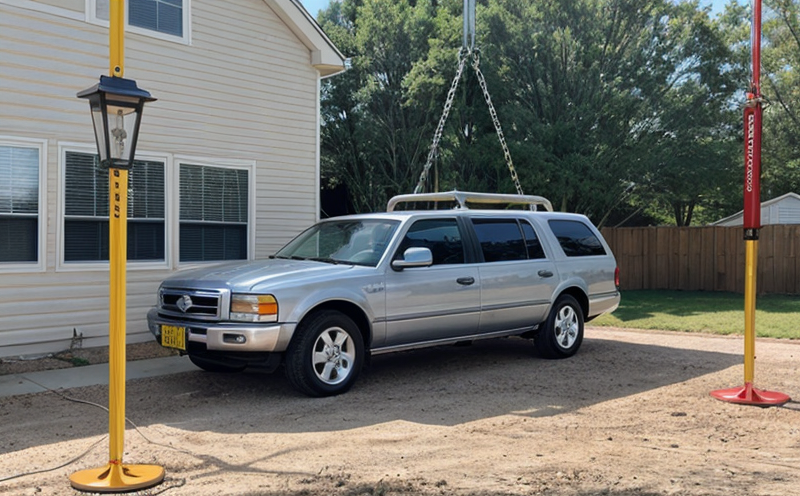Spreader bar inspection
In the realm of lifting equipment and crane operations, spreader bars play a critical role in ensuring safe and efficient material handling. These structural components connect the load to the crane hook or trolley, distributing the load evenly across the lifting mechanism. Given their pivotal position within the system, regular inspections are paramount to ensure compliance with safety standards and operational reliability.
Our spreader bar inspection service is designed specifically for quality managers, compliance officers, R&D engineers, and procurement professionals who need reliable and precise assessment of these components. Our team utilizes advanced diagnostic tools and industry-standard procedures to evaluate the structural integrity and functional performance of spreader bars. This comprehensive approach ensures that any potential issues are identified early, preventing costly downtime or accidents.
When conducting inspections, we follow a structured process:
- Visual inspection: A thorough examination for visible signs of damage or wear.
- Measurement checks: Precise measurements to identify any deviations from design specifications.
- Destructive testing (optional): For critical components where non-destructive tests are insufficient.
- Fatigue and stress analysis: Using finite element analysis to predict potential failure points.
The results of our inspections provide detailed reports that include:
- Condition assessment based on visual, measurement, and destructive testing findings.
- Analysis of structural integrity and functional performance.
- Recommendations for maintenance or replacement actions.
Our service is aligned with international standards such as ISO 13759:2006 and EN 14480-1, which provide the framework for inspection procedures of lifting appliances. Compliance with these standards ensures that our inspections meet industry benchmarks.
Applied Standards
The spreader bar inspection service adheres to several international standards that are recognized globally for their rigor and reliability:
- ISO 13759:2006: This standard specifies the requirements for the design, manufacture, installation, and maintenance of lifting appliances. It provides a comprehensive framework that includes inspection procedures.
- EN 14480-1: This European standard covers the design, construction, marking, testing, and quality assurance of cranes and lifting accessories. Our inspections ensure compliance with these stringent requirements.
In addition to these standards, our team also considers local regulations and client-specific guidelines when performing inspections.
Benefits
- Enhanced Safety: By identifying potential hazards early, we reduce the risk of accidents and injuries in lifting operations.
- Cost Efficiency: Preventive maintenance recommendations save on long-term repair costs and downtime.
- Avoidance of Regulatory Penalties: Compliance with international standards minimizes legal risks associated with non-compliance.
- Extended Equipment Lifespan: Regular inspections help in timely replacement or repair, thus extending the useful life of spreader bars.
The benefits extend beyond mere compliance; they translate into a safer workplace and more efficient operations. Our service ensures that your lifting equipment remains reliable and safe for extended periods.
Environmental and Sustainability Contributions
- Eco-Friendly Operations: By ensuring the safety and reliability of lifting systems, we contribute to reducing accidents and associated environmental impacts such as fuel spills or material mishandling.
- Resource Efficiency: Through our inspections, we help in optimizing resource use by preventing unnecessary replacements and repairs. This leads to reduced waste generation and lower operational costs.
- Promoting Sustainable Practices: Our service aligns with broader sustainability goals by promoting safe and efficient material handling practices that minimize the carbon footprint of industrial operations.
Our commitment to environmental responsibility is reflected in our approach to every inspection, ensuring that we contribute positively to the sustainability efforts of our clients.





